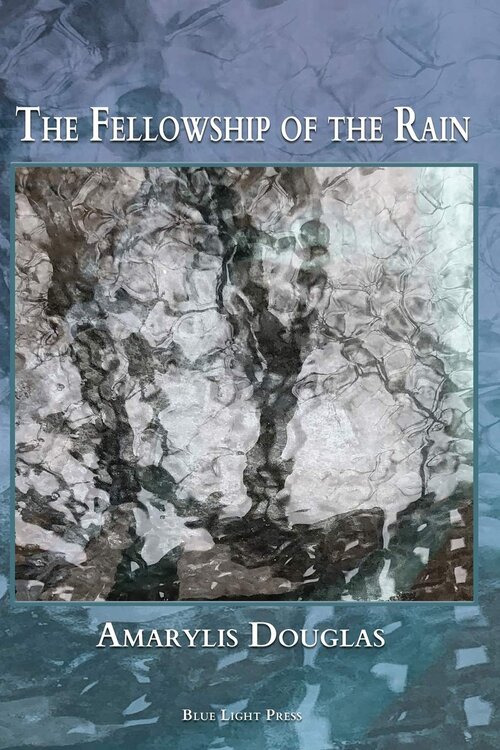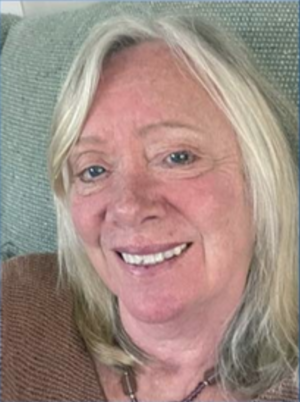When did you first encounter poetry? How did you discover that you wanted to write poems?
In the early 1970’s, while home from college for the summer, I took a summer writing class at Berkshire Community College, with Ron Atkinson (author of Looking for My Name). He encouraged me to write. My first satire, “Life of a Pool Guard,” was published that summer in The Berkshire Eagle. Ron invited me to join a group of area poets. We did some readings in the area and he edited a book of our poems, Our Place, an anthology of Berkshire Hills poets.
Do you have a writing routine? A favorite time or place to write?
I write things down anywhere, when lines come to me, on a scrap of paper, in my phone, on my hand. I have two places that I go to to write. One is out on our deck, up among the pitch pines. The other is at my desk. My desk is old and was found at an estate sale on West Chop on Martha’s Vineyard. My partner saw it and bought it for me. It was in an old house and he had to take off the railing of the stairs to get it downstairs. He then replaced the railing. What I love about the desk is that it has to be opened with a key, so it feels like I am opening up the door to poetry. I usually like to write in the late afternoons, just before sunset.

Where do your poems most often “come from”—an image, a sound, a phrase, an idea?
My poems come from a feeling, a feeling that pushes itself up into view. That is the best, when the feeling pushes through me, and I am just the person holding the pen. My years of witnessing homelessness in Portland, Oregon and then picking up the pen to write it down, were a time of a “labor of love,” because that is exactly how the process worked. I witnessed. Then the words pushed through. I am pleased that Blue Light Press chose to publish my writing, and honor me with a 2020 poetry award, for my book The Fellowship of the Rain. But, what makes me most happy is to have these poems read, and for people to stop for a moment to look at many of the different faces of homelessness.
Which writers (living or dead) have influenced you the most?
My favorite poets are Tomas Transtromer and William Stafford.
What excites you most about your new collection? (Significance of the title? Overarching themes? Process/experience of assembling it?)
I am most excited when, after someone reads my poems, they tell me just how deeply moved they were by the poems, or that they thought it was important that these stories be told. That is one of the comments that the editor of the book had, when she chose to publish it. I have heard others say that also. That is the best.
Sample poem from The Fellowship of the Rain:
The Fellowship of the Rain
Here in the city, under the prayer of a streetlight,
the rain is your company, most of the night a soft chanting
on wet shoulders, cold hands, a pulled down knit cap.
You are grateful for that thankfully short conversation,
the burn of whiskey in your throat,
the momentary hallucination in the stretch of headlights,
for your home made of a sleeping bag and shopping cart.
Once there was a long table, three kinds of pie,
plenty of family to go around, to hold you in, tie you down.
All you had to do was to listen.
Here in the city, under the halo of a streetlight,
you know what a Thanksgiving night smells like.
Although you will sleep alone tonight,
you now belong to the fellowship of the rain.
Purchase The Fellowship of the Rain

Amarylis Douglas is originally from the Berkshires, in western Massachusetts. She has lived for forty years on the island of Martha’s Vineyard, where she brought up her three children and taught in island schools. She also lived in Portland, Oregon, for ten years, where she worked for the Title One program for Portland Public Schools. She has been a member of many writing groups in all three areas, most recently, The Martha’s Vineyard Poets’ Collective. Now back, based on the island, she returns often to spend time in Portland. Her poetry was first published in Our Place, an anthology of Berkshire Hills poets, and also in “The Vineyard Gazette” and “The Martha’s Vineyard Times”.
